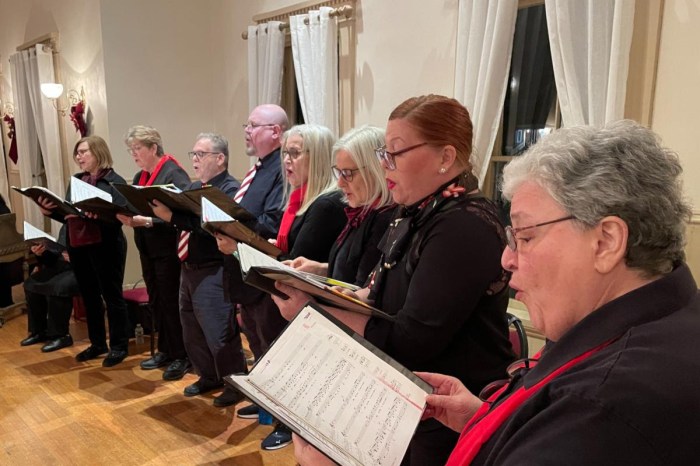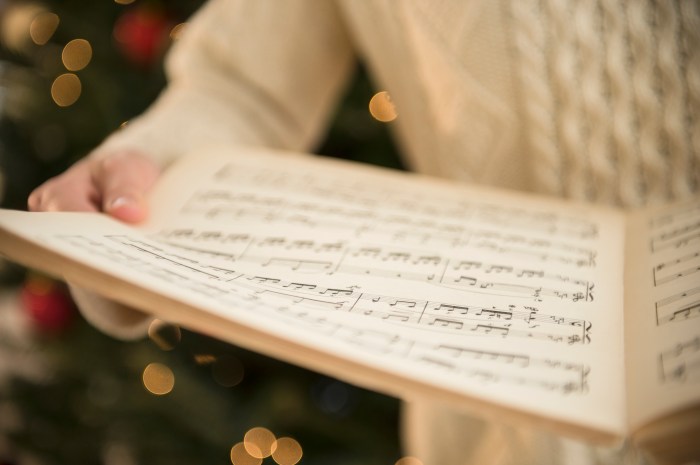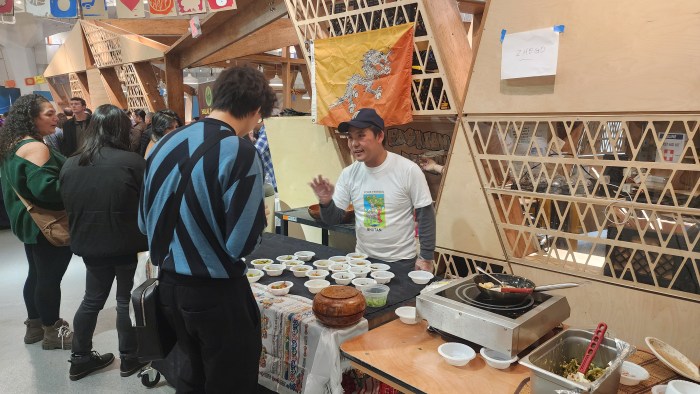By Raphael Sugarman
Lefteris Bournias says he’s felt like an outsider all of his life, a bit like the uncertain wind, blowing sharp or steamy one moment, melancholy or cool the next.
Luckily for Bournias’ fans — and due in large part to his ancestors’ innate appreciation of the life powers of human breath — Bournias has used his clarinet to connect both loved ones and strangers for about the past 25 years.
“To me, it’s an extension of my voice,” said the Bayside resident. “The fact I breathe into it, it comes alive, like an extension of my body.”
The Bournias family can trace their musical DNA back to at least the time of their paternal great-grandfather, Pantelis Bournias, on the island of Chios in the Aegean Sea. A notable local poet himself, Pantelis’ five children grew up to be musicians, including two clarinetists, a violinist, as well as lute and santur players.
“I have heard that people used to ask my great great-grandfather to compose a poem right on the spot,” said Bournias, displaying a musician’s knowledge of the challenges of adlibbing.
His father Elias shared tales with him about his grandfather who would play gigs lasting nine days, during which members of the band “would go home and sleep for a few hours and then come back,” said Lefteris.
Decades later Elias Bournias moved to New York City, to an unknown place called Hell’s Kitchen.
Elias was an artist, too, but in the culinary world rather than the musical. He became a chef at Manhattan’s Pierre Hotel and owner of the Roosevelt Coffee Shop, Lefteris said.
But the musical winds of the Bournias family never left Elias and in his tidbits of spare time, he played the Shepherd’s Flute.
“I remember picking it up a couple of times when I was a kid and making a sound,” said Lefteris, 40.
When Lefteris was only 10, his father announced to his wife Elizabeth and three children that despite their success in America, he longed to return to his Greek homeland.
“When we left, we could barely speak Greek,” said Lefteris, who settled with his family in a small town near Athens. “The kids in our school were studying ‘The Iliad’ and ‘The Odyssey,’ but in ancient Greek.”
As he grew into his teenage years, Lefteris began listening to Led Zeppelin, Black Sabbath, Pink Floyd and other rock bands. He asked his mother to buy him a guitar.
“She said to me, ‘Why don’t you get a clarinet and make your father happy?’” Bournias recalled.
He did, and began to play his instrument of wind.
With his family resettled in Greece, Elias Bournias traveled back and forth on business between Athens and New York. The trips sometimes lasted as long as a year — a long time for his wife and young children.
“Growing up as a boy without my father around very much was not easy,” said Lefteris. “A young boy looks for a sense of guidance and security.”
The period of his father’s absences coincided with the first tiny seedlings of Bournias’ public personae as a musician. He began playing in Greek outdoor festivals called panigiria, which can last for 12 hours, he said.
It was as if the straight black clarinet was connecting father and son, like a felt marker on a map between two continents.
“There were times that I felt that the sound coming from my clarinet was connecting us,” said Lefteris.
For a time though, he decided to take a more practical route and enroll in the New York City College of Technology, where he studied cooking and baking, planning to follow in his father’s footsteps.
Instead, a fateful audition would put him on the path of music and his beloved clarinet. He played for Eugene Armour, the head of the music deparment at NYCCT. Armour told Bournias that he would be sorely mistaken not to study music.
The young clarinetist enrolled at the Aaron Copeland School of Music at Queens College. He earned both a bachelor’s degree and a master’s.
“I got to learn musical analysis, theater and orchestration,” he said. “I had never really studied those things before.”
At the same time, he continued to play traditional Greek music.
These days, Lerteris has nicely merged both worlds. On the weekends, his Apollo Orchestra plays private functions, including as many as 100 weddings, christenings and other private parties each year, he said.
He is also the founder and head of the Kavala Brass Band, which plays Greek music with a less traditional bent. Bournias also plays with the Meandros Ensemble, which features the music of Asia Minor, as well as such artists as Electra Curtis, a violinist who fuses Greek and Arabic music.
Last month, he was asked to play Cuban-Jewish music in the debut of Roberto Rodriguez’s Orquesta Sarabia, a 10-piece group, at the David Rubinstein Atrium at Lincoln Center.
He has performed World Music with the Queens Borough Philharmonic and performed Zorba the Greek at Lincoln Center in a show orchestrated by the legendary jazzman, Skitch Henderson.
“Every time I play, I can visualize my great-great grandfather,” he said. “I am always carrying their energy. They are alive though the music.”
Bournias is planning to spend much of the summer touring in Europe. To check out his activities for the fall, go to www.apollorchestas.com.





































